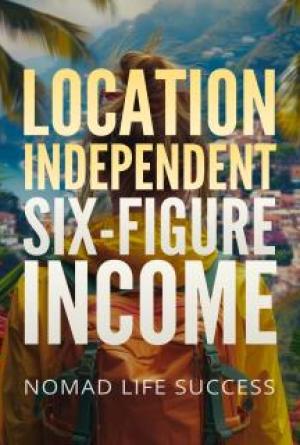On the other hand,
the policy of each retirement system for the teachers may vary depending on the
state law, where it falls under a particular state’s jurisdiction.
Just like any
retirement programs, the teachers who chose to be a member of the system are
required to pay the monthly contributions to the system. Usually, the monthly
contribution is 6.4% of their total gross income.
As the teacher
reaches his or her retirement age, he or she will soon benefit from the money
that they have long saved. Indeed, with all these things present, the teacher
retirement is truly a feasible method of saving for the future.
The Time to Retire
When people are
young, the word retirement is not something of much concern. It is 20 or even
30 years away and a lot can happen during that time. The thought of retiring
and what to do when the time comes, is a dream and with proper planning that
can become a reality.
Years ago, the
concept of retirement did not exist. People worked till the day came where they
would die. Those days are gone now with
government sponsored health care, company benefits and insurance companies.
Figures show that
some people who have reached the age of 50 are not able to make that dream a
reality.
To avoid being one
of the people who have failed in making the dream come to life, you should
think smart and save up while there is still time.
Playing it smart
and managing expenses is one of the ways of getting to that goal. You can buy
groceries from the supermarket instead of the local convenience store since
items are much cheaper there. A person can also buy generic stuff instead of
designer products that are of equal quality. The money saved is a start and in
time, can go a long way.
Getting a good 401k
plan from the company is another. The money saved will double in a few years
and if the time is right, then one can already think about retiring.
Financial
institutions can also help make this dream come true. With the packages that
are offered and the interest rates that are available, it can enable someone to
double the money in 10 to 15 years which makes early retirement also possible.
In the 1970’s
people worked hard and relied more on the job than the investments that were
available. These days it is the other way around which can make it challenging
at times.
There is no ideal
time to retire. It depends if the person has accumulated a certain amount of
cash which makes it easy not to rely on a monthly paycheck anymore and if one
is willing to finally settle down.
Life after
retirement does not end there. There are some who have decided to get another
job instead of lounging around at home.
This helps the person stay active, productive and physically active.
It can make a
person try out new things like going back to school or exploring a new talent
which one can excel in later on.
The options are
endless and retirement made that all possible.
Looking for Retirement Paradise
Your days of toil
are almost over and the relaxing and pleasant age of retirement has dawned.
Time to make one of the most important decisions of your life: choosing a place
for you to enjoy your well-earned rest. It can be pretty daunting to think
about it, but with a few pointers you should be able to make the best choice
for yourself.
There are a few
things to look at. These are your finances, the climate, health care facilities
and, of course, distance from your family.
Let us first take a
look at your finances. Ask yourself the following questions: can I afford a
move from my location? How much money do I have coming and can I support myself
while staying at my present home? Will I be able to pay the taxes, both state
and local that I will be accruing?
Take a look at your
nest egg and judge what you can afford. If staying at your current residence is
cheaper than moving out, by all means stay - you can't enjoy retirement without
your hard-earned money. Also, make calculations on what you'll be spending your
money on. That way, you can also check if you can afford to move into a decent
retirement community.
The climate is
another factor. Take into consideration the fact that you're not as spry or
healthy anymore - the extremes of warmth and cold can do major damage to an old
body. Also, think about what you enjoy - if you have hobbies that are specific
to a particular climate, it would be best to choose the right one for your
pastime. Enjoy fishing or swimming? Maybe a nice coastal residence with a sunny
climate would be the best for you. A majority of retirees prefer warmer climates
for their retirement days and thus choose to take residence in the southern
states. Florida isn't the only senior-friendly state and you have a wide array
to choose from.
The two final
factors are the medical facilities and how far away from your relatives do you
want to be. Growing old usually means fading health and your choice for
spending your golden years should have ample access to health care. Check
around for a place with a good hospital or a nice local doctor. Relaxing in
your twilight years would be better if you had the good health to enjoy them.
Also, take into consideration your immediate family. Do they want to visit
often? Do you want them to visit often? Do you want to drop by on them
frequently? Try checking for a place that is affordable for you and your
family's travel budget and easy enough for them to visit.
Life Begins With Retirement
Sometimes
transitioning from your workaholic daily life to the relaxed rhythm of the
golden years is not easy. Some people have difficulty finding the same feeling
of accomplishment they had when working in the fast lane. They see retirement
as a dead end. This shouldn't be so - retirement is retiring from your job not
your life. It's like shifting to the slow lane on a highway - less demanding,
more relaxed and even pleasurable.
Put things into
perspective: remember the days at your job when you wanted to chuck it all in
and go off to relax somewhere. Think of the times when you just wanted to kick
back and not care about anything at all. Retirement is all about that. You may
dislike the slower pace but, in the end, it is what you've been working towards
in your job and it is time that you enjoy the fruits of your labors. It’s
finally time to handle life on your terms!
All your anxiety
and restlessness is just a reaction to the change you're experiencing. Make no
mistake; retirement is a major life change that brings with all that it entails
- a bit of emotional displacement and depression. You can handle it like all the
other changes in life: go with the flow and learn to adapt.
When the honeymoon
phase of retirement is over, you will inevitably feel all these things and
more. This is where you start to figure out ways to spend your retirement time
- what you want to do, how much time you
want to spend on whatever interest you have and what interests to pursue. The
difference here from your working days is the fact that you'll be answering to
no one but yourself, not the company boss or the company itself. This is your
"me" time and it will last for the rest of your life. You may have
put your dreams on hold when you went to work and began making a living - why
not start them up again?
Here are a few more
pointers that may help you on how to enjoy your golden years:
- Sharpen your
talents: Singing, dancing and many other interests may have been hard to pursue
during your working years, but retirement offers you the opportunity to enjoy
and even improve them.
- Reaching out: All
the people you've met through the years and your old friends that you've fallen
out of contact of, people you wished to know more about and to keep in touch
with? What better way to spend your golden years but to revive these old ties
and hook up with old pals?
- Travel: It's
always good to see the rest of the world and now you have a lot of time to
spare. Pack your bags and call your travel agent, it's time to go on a trip!
These are just a
few suggestions. Remember, when you're in your golden years, the sky's the
limit!
Not Willing to Leave Just Yet
When people are
young, the word retirement is not something of much concern. It is 20 or even
30 years away and a lot can happen during that time. It is something that slips in an out that is
given little thought.
Some companies
offer early retirement to its employees. Even if the age of retirement is
officially at 65, there are some who are not yet willing to leave and would
rather work some more instead of enjoying the other pleasures that life has to
offer.
A job or a
profession to some is what makes the person a member of the community. It makes
the person feel important for the years of service given and the number of
accomplishments one has achieved. These are things that some people hold on to
which makes retirement hard to accept.
The psychological
impact makes it hard for someone who has lived in a fast paced world to adjust
to a life that is at a more leisurely pace. Some forms of leisure after working
for so long can be done by spending more time with family and friends, playing
golf or cruising around the world.
Another reason is
perhaps the person who is still employed is just waiting for the right moment
or package that the company will give out to its employees. Such issues are
whether or not the retirement package that is being offered is higher than the
projected earnings if one stays employed or if the retirement fund can be used
immediately once it has been given.
Some people can get
more just waiting for the normal retirement age than accepting the company’s
early retirement plan. Instead of saving, one might end up forfeiting and miss
out on opportunities to make additional contributions to the plan.
People who don’t
want to retire yet are also concerned if the offer given by the company includes
post-retirement medical insurance. This is because Medicare doesn’t start until
one has reached the age of 65 and the cost of getting private insurance is
expensive.
There are risks in
deciding to stay if a retirement offer is on the table. Business may not be
doing well prompting the company to lay off workers or even have the position
one has eliminated due to redundancy.
The most important
reason that makes some employees still stay is that regardless of age, one
strongly believes that one can still do more being at the job.
Tax Implications of Retirement Accounts
There are several
retirement accounts with tax implications. 401K accounts, Keogh accounts, Roth
IRAs and standard IRAs are some of the most important and widely know retirement
accounts.
What is an
Individual Retirement Account (IRA)?
An Individual
Retirement Account (IRA) is a retirement investment into which you put
contributions on which you do not pay taxes until you withdraw the money from
the account after you retire. Usually, your tax bracket will be lower after
retirement and so you won't have to pay as high a percentage of the money in
taxes as you would have if the money had been taxed at the time it was
originally earned. When you put money into an IRA, you get a tax deduction.
When you take a "distribution" from that IRA later, it counts as
taxable income. There are penalties for early withdrawal up to age 59 1/2.
You are required to
start taking money out of your IRA no later than at age 70 1/2.
You should check
with your accountant or the IRS to see how much you can contribute in the
current tax year. How much of this money is tax deductible depends on your
Adjusted Gross Income (AGI) and whether you are covered under an employer
retirement plan.
There are other
variations of the standard IRA, such as the "Simple IRA," a
relatively new but popular employer based plan allowing employer contributions
and a higher contribution by the taxpayer.
What is a 401K
Retirement Account?
A 401K plan is named
after a section of the 1978 U.S. Tax code. It is a plan offered by employers
which allows you to automatically save a portion of your income for retirement
without paying taxes now on the money you are saving. As with the IRA, the idea
behind it is you'll be in a lower tax bracket after retirement and therefore
will have less tax to pay on the saved money than you would pay now at your
higher salaried income rate. You only pay taxes on the money when you withdraw
it from the 401K account after retirement.
Usually, the 401K
money is automatically deducted from your paycheck by the company's payroll
system in much the same way your taxes are withheld.
In its basic
configuration, a 401K account is similar to a standard IRA, but in many
employers' plans, there is a matching contribution from the employer which
provides the real power to the plan. Beware. Many companies invest the 401K
plan money heavily in their own company stock. If the company has an unusually
bad financial problem, you might find this money in jeopardy as well as your
job. The best 401K plans allow you to control the investment vehicles for your
money.
Typically, at the
time of retirement, a 401K plan is "rolled over" into a standard IRA,
from which the retiree then makes withdrawals over time to provide retirement
income.
What is a Keogh
Retirement Account?
A Keogh retirement
account is a tax deferred retirement plan for self employed people. If you are
self employed, with a sole proprietorship or a partnership, then this is the
plan you may want to consider setting up. Any type of qualified retirement
account can be set up to cover self employed individuals. You should also look
into 401K plans, and standard and Roth IRAs.
There are
advantages and disadvantages to each. One advantage to the Keogh plan is that
contributions are deducted from the gross income. Contribution limits are more
liberal than those allowed with some other retirement accounts. As with other
retirement accounts, tax is deferred until money is withdrawn, usually after
retirement. In some cases, lump sum withdrawals may be eligible for 10 year
averaging which can provide a tax benefit.
Another IRA type
used for self employed sole proprietors is a SEP IRA which has less complex
filing administrative paperwork and allows higher contributions.
What is a Roth IRA?
The Roth IRA came
into existence in 1998 and is named after the late Senator William V. Roth, Jr.
The chief advantage of a Roth IRA is obvious. Although there is no deferral of
taxes on the money originally invested in a Roth IRA, as in other IRAs, all
income earned by the investments in a Roth account is tax free when it is
withdrawn. Another benefit is that you are not required to take distributions
beginning at age 70 1/2 as with other accounts, so if you don't need the money
to live on, it can continue growing and earning for you tax free. Also, a Roth
IRA makes it easier in some cases to take early withdrawals without penalties
compared to other retirement accounts.
For many people,
the Roth IRA is a wonderful retirement investment account. Some employers offer
Roth 401K plans.
There are, however,
limitations on who may contribute and under what conditions. Individuals with
higher incomes may not be able to use a Roth IRA. Check with your accountant or
the IRS for current rules.
You need to plan
early and do your homework thoroughly. Review your choices regularly since
rules and types of accounts change over time. Don't wait until you are 60 to
start planning for your retirement or you'll be sorry.







